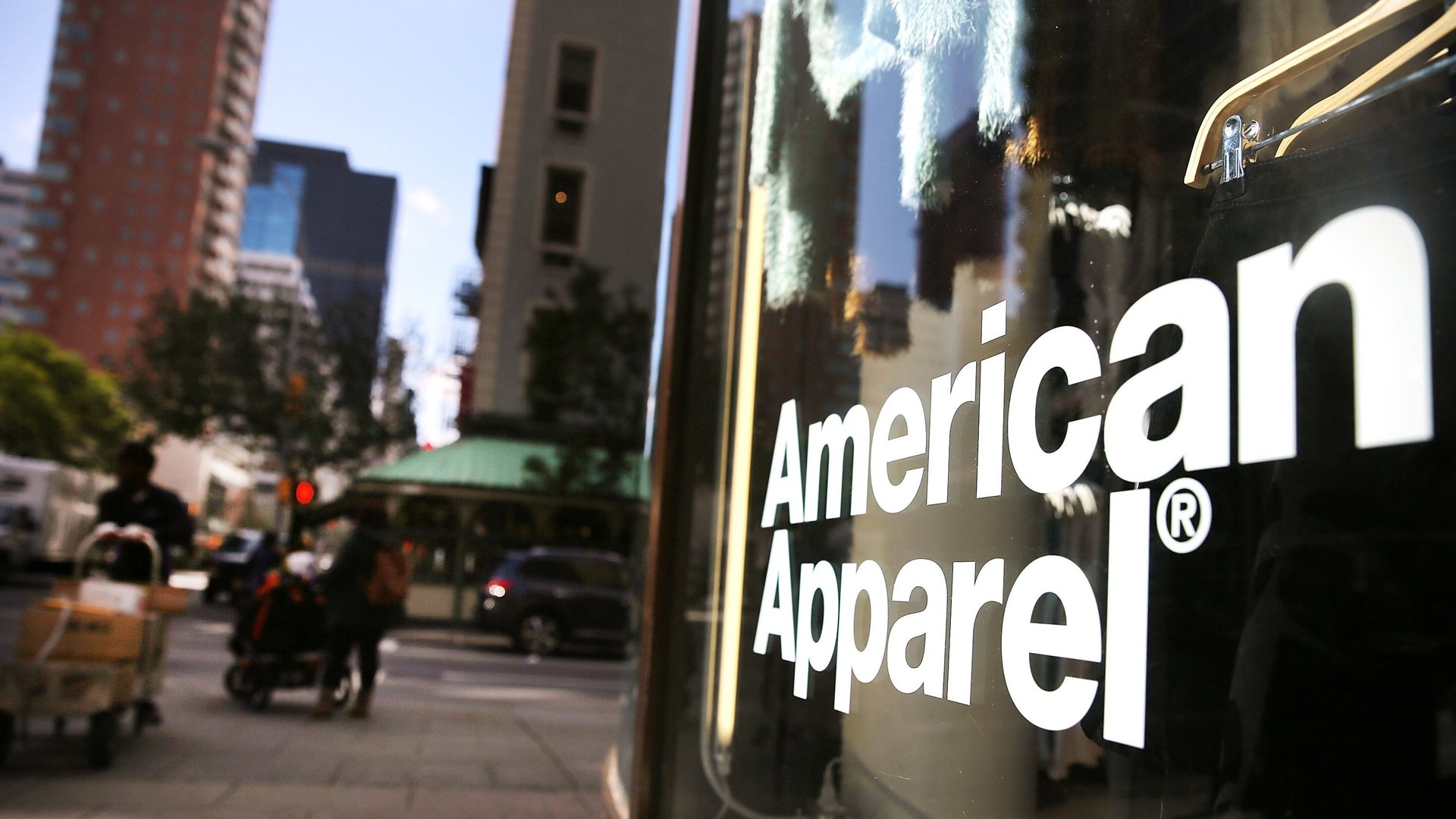A court has told American Apparel’s polarizing founder that he can’t have his company back
This post has been updated.


This post has been updated.
American Apparel’s controversial founder, Dov Charney, has been fighting to reclaim control of his company since he was fired a year-and-a-half ago. Yesterday (Jan. 26), a US Bankruptcy Court judge effectively ended that fight.
The court approved a restructuring plan put forth by American Apparel and its new management, taking the company private and handing control to its senior creditors. Doing so closed the door on an alternative proposal put forward by Charney, which involved a $300 million bid backed by two private equity firms to buy out the company. Charney had argued that the company he built would fail without his leadership, but the judge in the case decided his plan offered no “meaningful alternative” to the company’s chosen route.
Charney, who founded the company in 1989 and after battling back claims he had sexually harassed employees was ousted in 2014 for “alleged misconduct and violations of company policy,” can still appeal the decision. But he’s told multiple sources he won’t. His chances of winning are slim, and the process would likely be extremely costly. Charney told the Los Angeles Times he doesn’t have the money to pursue it. He does, however, still plan to pursue his lawsuits against American Apparel and Standard General, the hedge fund he believes helped engineer his firing.
In the debt-for-equity swap approved by the court, American Apparel will see more than $200 million in debt wiped clean as its creditors get control. Those include Monarch Alternative Capital, Coliseum Capital, and Goldman Sachs Asset Management. The company will also get a $40 million loan to help it exit bankruptcy, and another $40 million in new debt and equity from its new owners.
Meanwhile, the company’s shareholders, most notably Charney, will essentially lose everything.
Paula Schneider, who was appointed CEO after Charney’s ouster, told WWD (paywall) that the decision has freed the company from a protracted court battle but also from the debt that had critically hampered it. “What it does allow is the freedom to move forward now [and] the ability to have some liquidity that we desperately need and make American Apparel stronger,” she said. Since taking over a year ago, Schneider has focused on cutting back excess, both in the number of retail stores the company operates and its product offering, while also introducing new styles to attract new shoppers.
Even so, American Apparel faces a difficult road ahead. It hasn’t posted a profit in years.
While Charney’s struggle to take back the company he created may be done—or at least put on indefinite hold—his days in the apparel business likely aren’t. As Bloomberg reported, the man who tenaciously erected American Apparel on a mix of vaguely pornographic marketing and made-in-the-USA manufacturing is looking to start a new company. He hasn’t revealed concrete details, but it would be a direct competitor to American Apparel, and the head of one of the private equity firms behind his buyout proposal for his former company has already said he’s backing Charney’s new venture.
“At the end of this saga, I, like the many former stockholders, will most likely be left with nothing,” Charney said in a statement. “Despite that, what gives me great optimism are the things I possess that can’t be stolen by a hedge fund—my ideas, values, drive and my passion. To that end I ask that my supporters stay tuned.”
Update, Jan. 28, 8:30am EST: The post was updated to more accurately describe the circumstances of Dov Charney’s firing.